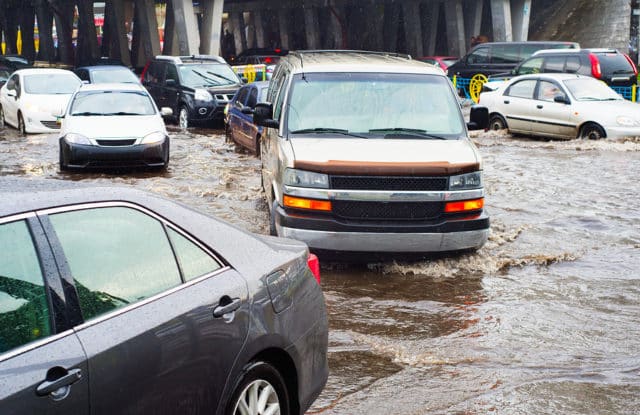The floods in Texas caused by tropical storm Harvey could cost up to $20 billion for the US insurance industry, making it one of the ten most expensive hurricanes in US history, according to a report.
In this regard, according to JP Morgan Chase, the cost to insurers, especially for the damages and floods that have occurred in the Houston and Galveston areas, will reach at least $10 billion and could rise Up to $20 billion.
In fact, according to the New York-based bank and others like Citi, the actual extent of the disaster remains to be determined, as floods are still expected to continue throughout the week.
However, most affected households do not have flood insurance policies, so the final impact on the insurance sector is not expected to be as bad, while assistance will come from the federal disaster fund (FEMA).
According to the National Hurricane Center (NHC), there is no precedent for the floods caused by Hurricane Harvey, a fact that the National Weather Service (NWS) confirmed through its Twitter account, stating that the total impact is still unknown and can go beyond everything already experienced.
Texas is one of the most important states in the United States in terms of its energy activity, accounting for about 30% of the country’s refining capacity. The passage of the hurricane has caused the temporary closure of many platforms, so it is estimated that 22% of the production capacity of this region is suspended.
According to Citigroup, the temporary closure of refineries could serve as a tailwind for oil, as crude oil prices tend to rise. In this sense, the bank also believes that the demand for oil will increase as soon as the reconstructions begin.
Although he points out that the volatility of oil prices related to a storm has always been temporary and short-lived, and asserts that the distortions should disappear in two or three weeks, although the evolution of floods will be key to confirm This trend.
Also, remember that the season of peak oil demand is about to end, so in the coming weeks this seasonal variable will also have effects on the price of ‘black gold’.
Meanwhile, the price of gasoline in the market has increased more than 5%, and analysts predict that this advance may be higher if the refinery suspension is maintained.
However, the company believes that the companies are widely diversified between regions, so there should be no major changes in the expectations of their profits for the year as a whole.












